
Key people in this story are (above l to r) MSNBC reporter Ken Dilanian, William Browder whose Magnitsky story Dilanian proved fake, and State Department Russia analyst Robert Otto who Browder copied on his emails with Dilanian. (photos from video screen shots and government websites)
By Lucy Komisar
Dec 4, 2024
On Thursday Dec 5, William Browder testifies before the Senate Foreign Relations Committee on implementation of the global “Magnitsky” laws.
The chair of the committee Ben Cardin (D-Md) wrote the U.S. law. Or rather former State Department official and Browder collaborator Jonathan Winer wrote the law. Browder will likely repeat the assertions of his Magnitsky story, on which the law is based.
Maybe you’ve heard of William Browder and his alleged “lawyer” Sergei Magnitsky, who he says the Russians murdered in 2009 after he exposed a multi-million fraud by officials. Browder has told the tale all over the U.S. and Europe. But MSNBC reporter Ken Dilanian had proof it was a fabrication.
This is the time to tell, for the first time, how MSNBC killed a story by its own national security reporter on Browder’s Magnitsky hoax. It killed the report after a legal threat from Browder. And MSNBC has continued to run stories supporting the Browder hoax though it had evidence it was not true. The U.S. government and the Congress, including in this hearing, also promote the Browder-Magnitsky fabrication. Because it fits U.S. anti-Russia policy. Truth appears irrelevant.
This is a tale of international corruption by a western financier who cleverly used Congress to protect his tax rip-off. This matters, because this relatively unimportant person – a citizen of the UK not the U.S. – in trying to keep millions in tax evasion gains out of the hands of Russian authorities, has had an out-sized impact on American foreign policy.
William Browder was born in 1964 in Princeton, NJ, but in 1998 he traded his American passport for one in Great Britain, which doesn’t tax citizens’ investments held offshore. That was convenient, because his Hermitage Fund was built on offshore companies set up by Mossack Fonseca of Panama Papers fame.
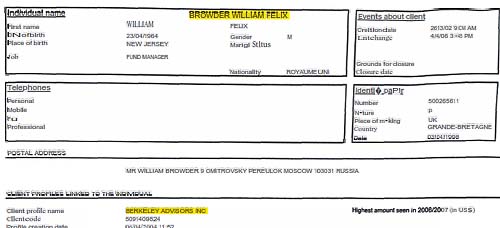
Browder’s Mossack Fonseca shell company.
The International Consortium of Investigative Journalists recruited nearly 400 journalists to write about the revelations of the massive cache of Mossack Fonseca/Panama Papers documents it obtained. None of them writing about high profile offshore account holders mentioned Browder. ICIJ director Gerard Ryle said in answer to my query that the journalists decided what to write about. But Browder, who clearly had a Mossack Fonseca shell company, somehow was not in the data base ICIJ made available to reporters. The only Browder was Browder Commercial, not William Browder. David Kaplan, who organized the project for ICIJ, was a board member of OCCRP, a U.S. government-funded media operation which collaborates with Browder. See Browder’s U.S. federal court deposition. ICIJ evades the question of the missing Bill Browder, whose scams have not been reported by Western media, corporate or “progressive.” Fear of being called an acolyte of Putin seems to strike terror! You will see what happened to MSNBC’s Ken Dilanian when he tried.
Even if Browder could avoid British taxes, he still owed Russian taxes on profits from his hedge fund’s Russian stock buys, and the Russians’ detailed charges now add up to an evaded $100 million.
So, Browder built a wall against Russian tax collectors by getting Congress in 2012 to pass the Magnitsky Act (aka the Browder Protection Act). Browder claimed his “lawyer” Sergei Magnitsky was beaten to death in prison for having revealed that Russian officials were involved in a tax refund fraud that scammed the Russian Treasury for $230 million. (Note Magnitsky didn’t discover the tax fraud, a pensioner named Rimma Starova did, as Dilanian pointed out. Magnitsky was jailed because he organized Browder’s Hermitage Fund’s $40-million tax evasion.)
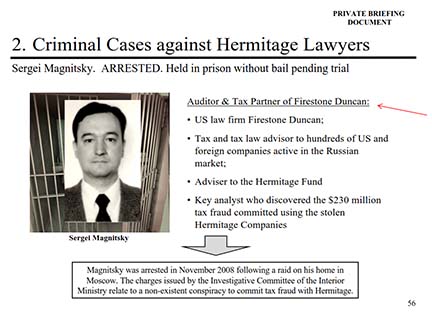
The law bans some Russians from U.S. financial dealings and visas if they are believed to have played a role or benefitted financially from Magnitsky’s death or were involved in the criminal conspiracy he (allegedly) uncovered. But Browder supplied no evidence of Magnitsky’s “beating” or “revelations.” Or even that he was a lawyer. He wasn’t. In fact Browder put out a report that called Magnitsky an auditor. And admitted in a sworn deposition to U.S. federal court 2015 that Magnitsky hadn’t gone to law school or gotten a law license.
Dilanian in the MSNBC News Investigative Unit in Washington had collected evidence that Browder was a tax evader and that his “lawyer,” Magnitsky, was the accountant who had cooked his tax books for a decade. He said the story about the murder was also false. Dilanian’s heavily-documented exposé was ready to go in May 2016.
Opposition to the “Magnitsky” law had prompted Russian lawyer Nataliya Veselnitskaya to get a meeting with Donald Trump Jr, the famous Trump Tower meeting, in June 2016. Her Russian client had been targeted by the Justice Department acting on Browder’s supplied but never documented claims. That meeting jump-started the Muller report and was one of its named “key events.”
If Dilanian’s story had been broadcast in May 2016, there might have been no Trump Tower meeting, as the Russian lawyer would have had other options. No targeting of Paul Manafort, who was at the meeting. Even an end to Magnitsky Act sanctions which ramped up U.S.-Russia antagonism two years before the Russian annexation of Crimea. And perhaps no Robert Mueller investigation which initially focused on Manafort.
In fact, the Mueller Report repeats, without evidence, Browder’s fabrications about hiring Magnitsky to investigate a tax fraud and being charged by Russian authorities after exposing it.
In the event, Browder’s lawyers threatened the conglomerate NBC with a lawsuit, and unlikely as it seems given the network’s superior resources, it caved. The letter by Browder lawyers Kobre & Kim was written to Steve Burke, CEO NBC Universal, Mark Hoffman, Chairman of NBC Broadcasting, Andrew Lack, Chairman of NBC News and MSNBC, and the company’s counsel, Kimberly D. Harris.
State Department officials dealing with Russia knew about Dilanian’s findings and Browder’s threats as they were unfolding, because Browder copied them on his email traffic with the reporter. The cache of messages was revealed by an unknown hacker who obtained the emails of State Department official Robert Otto, Russia Domestic Affairs Division Chief in the Office of Analysis for Russia and Eurasia, which prepares analyses for policy-makers.
His boss, office director, John P. Williams, was also in the Browder-Dilanian email loop. Foreign Policy magazine revealed the hack in July 2017, without naming the target or subject. The facts of the hack and some emails, but not the substance of Dilanian’s reporting, have been cited in twitter posts, but not by western media. Dana Rohrabacher, a Republican congressman from California, who was defeated last November, was the only U.S. politician who challenged Browder’s story.
A key element is the tax refund fraud, a scam in which fake lawsuits demanded money from complicit companies for defaulting on contracts. The companies used the “payments” to liquidate their profits and zero out their taxes. Several of Browder’s shell companies had been re-registered in new names and used to get a refund of $230 million from the Russian Treasury.
Browder said that the companies had been “stolen” and that tax authorities were complicit. Evidence filed in U.S. federal court raises questions about that, suggesting Browder’s trustee, HSBC, knew about the “theft” months before Browder says he learned of it. He got the U.S. Justice Department to bring a case in 2013 against Prevezon, a Russian-owned company he accused of receiving $1.9 million of the $230 million tax fraud and using it to buy U.S. real estate. The DOJ’s chief investigator said in a deposition the case was based on Browder’s documents, which he had not authenticated. Natalyia Veselnitskaya was Prevezon’s lawyer.
Here is how the drama of the Browder-Dilanian standoff unfolded, what they said to each other and what State Department officials knew.
April 25, 2016
Dilanian was trying to get an interview with Browder, but was stonewalled. April 25th, Dilanian wrote him: “Mr. Browder, could you please let me know whether you are willing to answer our questions? As I am sure you know by now, there are allegations in court documents, and in a new film, that you concocted the story of Magnitsky as a whistleblower to cover up your own alleged tax fraud. We intend to report on those allegations.”
The film was “The Magnitsky Act—Behind the Scenes,” directed by Andrei Nekrasov, which Browder’s legal threats have frightened western TV stations – even those that financed it — into refusing to air. Browder has never sued a journalist or media – he’d have to confront evidence and answer questions under oath — but his threats are enough to cow many of them.
Dilanian says Browder’s English translations of Russian documents are fake
Dilanian said, “Our own analysis has found that English translations of certain documents on sites linked to you do not match the original Russian on some key points. And we have found, for example, no evidence that Magnitsky was severely beaten just before his death as you have described. If you could just let me know one way or another whether you are willing to discuss this, I would appreciate it. Thanks.”
April 26, 2016
The next day Dilanian sent written questions that challenged Browder’s story about Magnitsky’s role, noted his connection to tax evasion by Browder’s companies, discrepancies in Browder’s claims of Magnitsky as a whistle-blower of Russian corruption, and links to evidence that refuted Browder’s assertion that Magnitsky was beaten to death by prison guards.
Such facts, if true, would have upended the justification for the Magnitsky Act and would have shown Browder’s claims to be a lie. And they would have cast a very different light on the visit to Donald Trump Jr. little more than a month later by a Russian lawyer whose goal was contesting the Magnitsky Act.
Dilanian says Browder hired Magnitsky for tax evasion
Starting with Magnitsky’s role, Dilanian pointed out that Browder claimed he hired Magnitsky in 2007 to investigate the theft of Hermitage-related companies, but that in fact he had worked for Hermitage and its companies earlier. He asked, “Wasn’t he working on some of the tax benefits in Kalmykia that led to the imposition of civil judgments [for tax evasion]?” That occurred in 2004.
On the theft of Hermitage companies, which Browder said was done by officials who had seized company documents in a raid, Dilanian pointed out that to re-register a company in Russia at the time, one did not need the original seals and documents. He asked, “Does that undermine the notion that the police stole the seals to re-register the companies?” And according to Hermitage, there were no longer significant assets in the companies.
On Magnitsky’s detention, Dilanian said Browder has said Magnitsky was detained [in 2008] because he testified that police were involved in a $230-million tax refund fraud against the Russian Treasury, but documents show he was detained in a tax evasion case involving Browder’s companies, but he did not accuse police of anything.
On Magnitsky as whistle-blower, Dilanian asked for comment on the fact that Russian news media – repeated on a former Hermitage website – said that Rimma Starova [a nominee or front name for a shell company that had taken control of the Browder companies] reported the theft to the Russian authorities in April 2008 – before Magnitsky allegedly knew about it.
Magnitsky did not accuse the police until 2009. Dilanian asked: “How could Magnitsky have been detained in retaliation for an allegation he didn’t make until after he was in police custody? How could he have been a whistleblower about something that was first reported by somebody else?”
Dilanian says Browder translations of Magnitsky’s testimony are false.
Targeted officials. Dilanian noted that Browder said that Magnitsky accused two police officials of the Interior Ministry. They ended up on the sanctions list. But Dilanian said that according to an NBC News translation, their names do not appear on the Russian version of that Magnitsky testimony. He asked Browder to explain the discrepancy.
On Magnitsky’s death, he asked Browder, who claimed that Magnitsky was beaten to death by prison guards, about a report by Russia’s Public Oversight Commission for Human Rights, widely cited as the definitive account, that made no mention of beatings and said there were no marks on Magnitsky’s body other than handcuff bruises. He asks why would there be no bruises or other marks on his head and torso. (That is supported by forensic reports in English and Russian and photos I obtained.) Magnitsky died of pancreatitis complicated by some other diseases of long-standing.
From the POC report; nothing about Browder’s claimed beating.
Otto and Williams
Otto and Williams had expressed skepticism about Browder’s Magnitsky story as they received copies of email exchanges between Browder and Dilanian. They believed that the Magnitsky story could be fake.
Three Browder shell companies were supposedly stolen, re-registered, and used to demand a fraudulent tax rebate. This led to the “whistle-blowing” by Magnitsky. In fact, as Otto writes, Hermitage filed complaints about the theft of budget funds in July 2008, but Magnitsky didn’t talk about it till October.
On Apr 26, 2016, at 5:42 PM, Bob <ro**********@***il.com> wrote to Williams:
“The actual theft occurs on December 24, 2007. That’s the day the tax authority 28 authorized the rebate to the firms illegally reregistered. Magnitskiy knew about the illegal re registration of the three companies that applied for the rebate at least as of June 2008. He doesn’t mention any theft of budget funds in the June testimony.
“The site claims that Magnitskiy discovered the theft only in July 2008 and Hermitage filed complaints that same month: see the documents at the bottom of the page.
http://russian-untouchables.com/eng/230m-theft-from-budget/
“At any rate, Browder may well have gone public before the October testimony, but he claims he got the info from Magnitskiy.
Am I missing something?
Good thing I didn’t file a leave slip.
Sent from my iPad”
A major problem for Browder was the film, “The Magnitsky Act – Behind the Scenes,” by Russian documentary maker Andrei Nekrasov who started out thinking Browder was right in his claims and, as he did research, concluded that the claims were false.
Browder threatened lawsuits that inhibited several European TV stations from screening the film, and succeeded in getting U.S. media as well as YouTube and Vimeo to refuse to show it. Otto wrote to a professor at Arizona State University about the situation, and expressed vague doubts.
Subject: Re: Please take good notes today please
Date: Tue, 26 Apr 2016 16:37:13 -0700
From: Bob <ro**********@***il.com>
To: David Kramer <Da************@*su.edu>
Thanks. This Browder stuff is curious. Nekrasov is no (obvious) regime tool. [Nekrasov had made films critical of the Putin government.]
Sent from my iPad
Government reporter checks with Browder on what she should cover
However, Browder so dominated the U.S. government’s view of his story, that a staffer of Radio Free Europe/ Radio Liberty, the government-funded broadcasting organization, checked with Browder to ask if they should cover a showing of the film at the European Parliament.
From: Irina Lagunina [mailto:La*******@***rl.org” data-original-string=”SdJ3pGuCcqxlxkb04CkrqQ==0c9PdHmjrgTexIqxskLbXXOqInflWWRy/Aqu3+4+eOeUGcmeJ2PeB82+9rOIPaoBAgxJsnyPkxDvL20X1RyveF65GgKK9x6to1prXtSoTaz9Chk4FXe8YCkDh2nPwxgX8nfFxz/qenfVkjDctmL9vdlDOIdQYjdo61tJT0t2W+7pZPC0c0aHJP9Y4AAfsiKsDKIsRekMQwwh+8hMELqM9bdfA==” title=”This contact has been encoded by Anti-Spam by CleanTalk. Click to decode. To finish the decoding make sure that JavaScript is enabled in your browser.]
Sent: Tuesday, April 26, 2016 2:47 PM
To: William Browder
Subject: Andrey Nekrasov documentary Dear Bill,
I have a somewhat delicate question. We got a notice that documentary producer Andrey Nekrasov will present a film about you and Mr. Khodorkovsky in Brussels. Nekrasov has a rather controversial reputation. So, we don’t know whether we should send a correspondent there or stay away from this event. May I ask you for our background – do you know about this documentary and do you approve it?
Thank you. And hope for confidentiality.
All the best,
Irina
Her note passed through the email chain to Otto, who learned that a staffer at Radio Free Europe/ Radio Liberty, a U.S. government-funded agency, was taking directions from Browder.
April 27, 2016
The premiere at the European Parliament was blocked on April 27, 2016, minutes before the scheduled screening, with the audience already in the room.
State Dept official thinks Browder may be lying.
But Otto was less concerned about the film than about what Dilanian might produce.
From: Bob [mailto:ro**********@***il.com” data-original-string=”ZsyQGqqCfqpQzC7O/L++IA==0c9YHDEwZEbAmkc6M114Q2BJuc59Uot98EiTYcHYZBcsIHJC+cnA1/JeXPWFDmohRFP8OmC6QrT6bMl1fgV7LtNetD070nWieH4znx3AIwhk9Waqea+VhQRDyj2N2XDGPnTSa9H8F0izdx+i2twXCT/JDsldh4dfWz0usVecYvOqm29IKPOSNLyc+v1FH2BydtU44fZOXm7XLopoKePa3s1rw8gtALPNl0upTj8GMbqmcw=” title=”This contact has been encoded by Anti-Spam by CleanTalk. Click to decode. To finish the decoding make sure that JavaScript is enabled in your browser.]
Sent: Wednesday, April 27, 2016 6:10 PM
To: David Kramer <Da************@*su.edu>
Subject: Re: Nekrasov Film Cancelled
“The NBC investigation seems more serious. Safe trip.”
Browder’s charges were never proved, and the State Department officials had their doubts. Otto joked to colleague Williams in April 27, about how Browder had become like the legend of Liberty Valance. He wrote in an email, “I am beginning to feel we are all just a part of the Browder PR machine. When I wrote the note on the meeting with him, I ended with The Untouchables. Here I will just quote from the Man Who Shot Liberty Valence: when the legend becomes fact, print the legend.” The Browder story was an invention that had taken on its own life.
Otto and Williams believed that Browder was not particular about the truth. Otto wrote that “when Karpov [a Russian put on the Magnitsky list] sued Browder in UK, the judge threw the case out of court. Browder touts this. But the judge also stated that Browder had no evidence that Karpov was involved in Magnitskiy’s torture and murder.”
Williams replied: “Yeah, I think there’s no doubt Browder has embellished along the way, which may come back to haunt him.”
And Otto wrote Williams April 27, 2016: “It all goes to when exactly the Browder crew knew about the theft of the funds.”
Otto had pointed questions about Browder’s basic charges of the tax refund fraud. He said to Williams the same day:
“I reread the June testimony this morning. It triggered a memory. besides my note on the meeting with Browder, I also wrote up a note on the different case numbers assigned to the issues involved that included some thoughts on that June document. It all goes to when exactly the Browder crew knew about the theft of the funds.
“There’s a reference in that document to a certain Fillip, just a 1st name and patronymic, no last name. He worked at tax authority 28. Magnitskiy never does this with anyone else; it sticks out like a sore thumb. I always wondered whether this was some type of signal to the investigators that he knew precisely what was up. But it’s only speculation.”
Otto also emailed Williams that he could do a better job than Nekrasov of discrediting the ‘official’ line. He said he had helped Kevin Rothrock, then a web editor at The Moscow Times, write an article for Global Voices, which reported on Russian findings that the corporate seals taken in the raid of his and his accountant’s offices were not the ones used in reregistering the companies.[1]
Otto wrote, “If what’s alleged is true about the seals, all the regime has to is call in independent experts and verify it. It’s among the reasons why Magnitskiy calling Fillip Alekseyevich only is important. And Magnitskiy did admit there were duplicate seals.”
And on that eventful April 27th, Browder’s lawyer Kobre & Kim emailed NBC a threatening letter that repeated Browder’s claims. Such as: “Mr. Dilanian initially claimed that his team had found “no evidence that Magnitsky was severely beaten just before his death. This is strange given the publicly available photos from the official autopsy of Mr. Magnitsky, which show injuries consistent with a beating.” ‘
Evidence shows no beating of Magnitsky
Photos do not show evidence of a beating. The only photos Browder published show bruises on wrists, ankles and knees none of them life-threatening and consistent with wearing handcuffs, shackles and his reported banging against doors.
Russian forensic reports include photos of the body with no marks on the head or torso and which neither Browder, who would have posted them along with the other pictures, nor anyone else has published. Forensic examiners concluded: “no violent death.”
The lawyers’ letter said, “the evidence concerning eight riot guards is from the first report published by an independent Moscow Public Oversight Commission.” There’s no evidence of a “first report.” The POC report filed in U.S. federal court says nothing about a beating. The other Kobre & Kim charges were also contradicted by Dilanian’s investigation.
(Later, Kobre & Kim would be investigated for having received tens of millions of dollars from a Thai businessman Jho Low, accused of playing a central role in the embezzlement of $4.5 billion from the 1Malaysia Development fund.)
April 29, 2016
Ignoring the legal threat, Dilanian April 29th sent Browder another email with questions.
May 1, 2016
Copied on the Browder-Dilanian email traffic, Otto wrote Williams, “I am reliably informed that Browder has threatened legal action if NBC goes forward with the program, btw.”
May 4, 2016
Browder responded to Dilanian May 4th. Here are Dilanian’s questions and Browder’s answers, including what Dilanian might have said in reply had he been given a chance to broadcast the story.
Issue 1: Beating
Dilanian: “First, regarding your description of Magnitsky being beaten to death, I wanted to clarify and give you a chance to answer. We cited the Public Oversight Commission for Human Rights Observance in Moscow Detention Centers, which examined Magnitsky’s treatment in jail, and is here in English: That report, as we said, concludes Magnitsky died as a result of medical neglect and makes no mention of beating.”
“Your attorney appeared to be referencing a different report, by the Presidential Council for Human Rights, titled, “Preliminary Conclusion of the working group on the study of circumstances of Sergey Magnitsky’s death.” The latter report says he was deprived of medical care, and that “there is reasonable suspicion to believe that the death was triggered by beating.”
However, Dilanian points out, the head of the working group, Kirill Kabanov, by then had repudiated that and other conclusions in the report, which he said were always considered preliminary. In a sworn affidavit filed in U.S. federal court, Kabanov said some of the report’s conclusions were “copied verbatim,” from documents submitted by Browder and associates. He noted that in an interview with NBC News, Kabanov said his panel found “no evidence whatsoever about beatings… The results of official forensic expertise that used original biological materials showed no evidence of beatings.” Dilanian said, “I wanted to give you a chance to comment on Kabanov’s remarks.”
Browder repeated what had already been repudiated. He replied that, “Kabanov’s current remarks are in direct contradiction to the 2011 Presidential Human Rights Council Report and various forensic exams in Russia.” Furthermore, Kabanov held a press conference with members of the Human Rights Council in Moscow in November 2011, where they publicly discussed the fact that Magnitsky was beaten and refuted the Russian state’s explanation that Magnitsky’s injuries were caused by “self-harm.” If Kabanov changed his public position, that had to be a lie. He repeated what he said were the findings of the Moscow Public Oversight Commission that there was reasonable suspicion to believe that the death was triggered by beating Magnitsky.
But the Public Oversight report does not contain those words, or anything like them. The only reference to beating is “his heart stopped beating.”
Browder cited reports that Magnitsky had injuries that could have been caused by a rubber truncheon, because “the injuries are caused through the impact of the blunt hard object (objects); the rubber truncheon is a blunt hard object.”
But the question put to forensic experts was not whether there were signs of beating, which would have led to much more serious injuries on the body, not just the wrists. It was about whether the injuries were due to handcuffs.
Browder ignored a section from the report that abrasions could have been caused by Magnitsky hitting against metal bars of a day-bed or by handcuffs.
He cited a document by a detention official and eyewitness that “rubber baton was applied,” “handcuffs were applied,” – ie Magnitsky was beaten by a rubber baton while handcuffed. But the Public Oversight Commission made no such claims. A document about a rubber baton, which he posted on his website, was a forgery, tracing a template giving permission for use of handcuffs. A Russian template about rubber batons does not exist. Note that he was sloppy, since the bottom of that document refers to handcuffs. See analysis of Browder’s forgery.
Browder said, “Sergei Magnitsky’s family would also be a more reliable source since they witnessed the injuries on his body and filed complaints for a murder investigation on the basis of those injuries.” However, the photographs Browder sent to the Physicians for Human Rights, and which are printed in its report, do not back up such claims. They show only bruises on wrists, knee and ankles.
Issue 2: Whistle-blowing
When Dilanian challenged Browder’s claims of Magnitsky as a whistle-blower, Browder wrote, “On June 5, 2008, S.L. Magnitsky testified as a witness as part of the criminal case initiated on complaint from Hermitage Fund on the stolen companies. At that time S.L. Magnitsky found out that the same lieutenant colonel Kuznetsov who had been involved in the events resulted in re-registration of Riland, Parfenion and Makhaon and illegal refund of tax receipts which was mentioned in the petition of the Hermitage Fund dated December 3, 2007, was engaged to investigation of this criminal case.”
That was a fabrication. Magnitsky said nothing about the illegal re-registration of companies or the illegal refund of tax receipts. Kuznetsov was a tax fraud investigator, and Magnitsky reported that he had asked for company documents and participated in a raid of the offices of Hermitage and its accountant. The Magnitsky testimony is public.
Browder told Dilanian that on October 7, 2008, S.L. Magnitsky testified as a witness on involvement of officers of MDIA in Moscow, in particular, in respect of Kuznetsov and Karpov, in the theft of 5.4 billion rubles from the budget of Russia.”
False. He talked about the unlawful reregistration of the Browder companies, but did not mention Kuznetsov or Karpov at all. The Magnitsky testimony is public.
Browder declared that, “Individuals who falsified documents for the court could not have done it successfully without access to the original founding documents, seals and information about accounts and financial operations.” He cited a charge by the National Anticorruption Committee[2] that the government officials used documents seized by investigators to reregister his companies. But that committee was headed by Kabanov, a fact he does not mention. And Kabanov had repudiated what Browder said.
Further, Magnitsky admitted in his October 2008 testimony that the documents and seals were not required to reregister companies.
Browder cited to Dilanian a Hermitage complaint that, “In June/July of 2007, under the pretext of identifying tax crimes and investigating the case against LLC Kameya, they [Russian investigators] conducted a purposed search for and seizure of information pertaining to the business of other companies, in regard with which no criminal case had been opened.”
But, Hermitage shells were already found to be tax evaders (in 2003 and 2005). So, the investigators were seeking information about its other companies they suspected might be doing the same.
Browder cited to Dilanian complaints filed Dec 10, 2007 by Hermitage with the office of the General Prosecutor and Interior Ministry, that the fraudulent reregistration of his companies “occurred with the possible assistance and participation of officers of the Investigative Department of the Moscow Branch of the Interior Ministry and some judges of the Arbitration Court of St. Petersburg and the Leningrad Region.” And involved “court judgments intended to steal assets from Russian companies based on the falsification” of company documents.
In fact, those companies had no assets, as Browder and Magnitsky both later admitted. The assets had been sent offshore to avoid being attached for back taxes. In his June 2008 testimony, Magnitsky said nothing was left except small amounts in bank accounts. With access to Russian bank records, authorities certainly knew that.
Browder cited Magnitsky’s June testimony which he said “outlines [investigators] Karpov and Kutznetsov’s actions” and remarks on “the possible use of the materials and information seized during the search.” Browder said, “This is clearly implicating the police in wrongdoing. As Kuznetsov led the raid and Karpov kept custody of the documents, his testimony on 5 June 2008 clearly implicates Karpov and Kuznetsov in the fraud.”
But Magnitsky’s testimony said nothing of the kind. Just that the individuals were investigating Hermitage tax fraud.
Browder wrote, “In July 2008, Hermitage filed a new series of complaints on the basis of Sergei’s investigation, reporting the discovery of the $230-million theft from the Treasury, which followed the misappropriation of Hermitage’s companies and the multi-million false liabilities against them.”
However, Paul Wrench, a Hermitage director who filed the complaints, said under oath in U.S. federal court in 2015, that the only person he recalled discussing the content with was Ivan Cherkasov, Browder’s London partner.
Browder repeated to Dilanian that, “The theft of state budget funds appears to have been assisted by the actions of certain members of the law enforcement agencies, who under the pretext of investigating a criminal case” seized companies’ documents and seals “which were later used by the perpetrators to fraudulently register ownership of the companies and thereby obtain court decisions by the use of fraudulent documents.”
But he provided no evidence the investigators “assisted” in the theft or that company documents and seals were used to reregister them. And Magnitsky would acknowledge in October 2008 that the documents and seals taken were not required to re-register the companies. And he testified June 5, 2008 that duplicates had been ordered:
“As it seemed unlikely to retrieve the original seals impounded by the Chief Investigatory Directorate prior to the deadlines of reporting (and they were scheduled for July 2007 in respect of the statements for the second quarter of 2007), the representatives of the companies decided to produce seal replicas, following consultations with the legal advisors. The order for the replicas was placed with a commercial firm specializing in the manufacture of seals and stamps. The seals were produced using print specimens of the original seals on various documents and copies supplied by the representatives of the companies.”
Browder repeated that Magnitsky’s testimony made it “clear that Karpov and Kuznetsov are complicit in this theft.” Except Magnitsky didn’t charge it much less prove it.
Magnitsky said his employers (Browder & associates) pressed him to lie
Browder declared to Dilanian that in October 2009, when Magnitsky had been in prison for nearly a year, he made a declaration that, “Kuznetsov and other law enforcement officials that have entered into a conspiracy with him could have been involved in stealing” the companies, followed by stealing $230 million from the budget. His proof is that “they were vitally interested in suppression of my activity connected with the assistance I was rendering to my client in investigating the circumstances of the above crimes. It was the ground for my prosecution.” It was the first time he had made that charge. Oleg Lurie, a Russian journalist (who has often been critical of Putin) who talked to Magnitsky in prison, said in a deposition to U.S. federal court that Magnitsky told him his employers had been pressing him to make statements that had nothing to do with the [tax evasion] charge against him.
Issue 3: Browder’s translations were fake
Dilanian asked Browder to explain why language in an English translation on his website was not in the Russian version. He said, “Specifically, we see an English translation of the Russian Public Oversight Commission for Human Rights report that included a purported statement by Magnitsky to a Russian interior ministry official on October 13, 2009, a month before his death. In that English version, Magnitsky accuses interior ministry officials in the “theft of 5.4 billion rubles from the State Treasury,” and it added that these men “were extremely interested in suppressing my activity relating to assisting my client in investigating the circumstances connected with these criminal offences.”
“We don’t see that language in the Russian version of the document, linked below. In your email of 4/26, you pointed us to a handwritten document, but that is not the document we are asking about. Those are below.” Browder was pointing to Magnitsky’s declaration in Russian script dated October 14, 2009.
Dilanian asked, “Could you please explain why the English version [of the POC report] appears to contain a paragraph that isn’t in the Russian version?” He included the Browder website links.
Russian version http://russian-untouchables.com/rus/docs/app_1.pdf
English translation http://russian-untouchables.com/docs/D24.pdf
The disputed alleged Magnitsky paragraph
“I believe that [Interior Ministry Lieutenant Colonel Artem] Kuznetsov and other law enforcement officers in conspiracy with him could be involved in the theft of OOO Rilend, OOO Makhaon, OOO Parfenion and the subsequent theft of 5.4 billion rubles from the State Treasury and were extremely interested in suppressing my activity relating to assisting my client in investigating the circumstances connected with these criminal offences. This was the reason for my unlawful criminal prosecution being carried out by investigator Silchenko.” OOO designates a Russian corporation.
Dilanian said, “This entire paragraph is not present in the Russian version of the report. The name Kuznetsov appears in the Russian report only once”:
“Markov was accompanied by his deputy, Lieutenant Kuznetsov. When we asked him whether Magnitsky’s hand were blue (as it was known from Magnitsky’s mother, she found that his hands were damaged), he replied that he saw only signs of handcuffs.”
There is no other mention of Kuznetsov in the Russian version, and also no mentioning of “OOO Rilend, OOO Makhaon, OOO Parfenion”, or the word “roubles”
The POC report on the Wall Street Journal site also has the fake paragraph.
Browder replied to Dilanian that the statement was in an earlier version of the Russian report. He said, “For reasons unknown to us, the three sentences about the 5.4 billion rubles were omitted in the latter version of the Public Oversight Commission’s report. This must have been a clerical error because the handwritten source documents of Sergei Magnitsky contain his original statements about the 5.4 billion rubles in full.”
Browder did not supply an earlier Russian version. Without that paragraph, the report was just a condemnation of conditions in a decrepit 100-year-old prison, with no connection to the $230-million fraud. It destroys Browder’s argument that Magnitsky was “murdered” for exposing official corruption. It destroys the basis for the Magnitsky Act.
May 4, 2016
There was continued discussion of the Nekrasov film exposé:
On Wednesday, May 4, 2016, Robert Otto <ro**********@***il.com> inquired about “the film and the europarliament … and ….the NBC production?
The response:
From: CP <swiggydig@andrew
Sent time: 05/04/2016 01:57:32 PM
To: Robert Otto <ro**********@***il.com>
Subject: Re: what’s the status
“No public showings of the film yet that I’m aware of. EP leaders are reenergized on sanctions. And Ken/NBC claims to still be writing something and may publish as soon as tomorrow. I expect Alexeeva and Borshov to publicly rubbish Nekrasov and NBC tomorrow, making NBC the story. Also, folks are poking around on the Veselnitskaya adoption angle. Did you see the Rohrabacher piece?”
Lyudmila Alexeeva was a member of Moscow Helsinki Watch. She did not reply to a query for evidence to back her support of Browder’s claims. Valery Boroshov was a member of the Public Oversight Commission that published a report about conditions of Magnitsky’s imprisonment. He did not disavow the report he signed, which negates what he later claimed.
Though Dilanian had solid evidence for everything he asserted, and Browder’s lawyer’s letter provided no evidence that anything Dilanian said was untrue, NBC investigative editor Richard Greenberg killed their reporter’s story. Andrew Lack, Chairman of NBC News and MSNBC, did not respond to this author’s requests for comment.
State Department officials Otto and Williams also did not reply to requests for comment. A FOIA request in January 2018 asking for documents showing who else had received the Dilanian emails was put in the “non-expedited” queue, and was “in process” the Department said nine months later, part of a backlog of 10,500 requests. It’s still “in process” seven years later. The State Department press office did not answer a request for comment.
More than a year after the story was killed by NBC, less than two weeks before Browder was to testify before the Senate Judiciary Committee looking into the Trump Tower meeting, Dilanian drilled holes in the story Browder would tell. On July 15, 2017, he wrote, “As Russian lawyer Natalia Veselnitskaya tells it, she met with Donald Trump Jr. and other Trump aides in New York last summer to press her case against a widely accepted account of Russian malfeasance, one that underpins a set of sanctions against Russians.”
It was a mild “he said/ he said” text with some of the charges and Browder’s answers, a shadow of the hard-hitting exposé the network had killed a year before. The 2017 story led with Russian lawyer Veselnitskaya challenging the Magnitsky Act. The logical second paragraph would have been, “And NBC has evidence that she is right.” Instead, he wrote: “The subject is a dense and tangled web, hinging on a complex case that led Congress to pass what is known as the Magnitsky Act.” Dilanian knew it wasn’t so complex. Most of the text in the only story he ever got published on the subject repeated facts already known, about the PR man who organized the Trump Tower meeting, that were not relevant to his exposé of Browder’s Magnitsky story.
But Dilanian’s comment that the lawyer was right was slight and buried at the end. He cited evidence that Magnitsky had not been beaten to death, without pointing out that those proofs undercut the Magnitsky Act, a major element of U.S. Russia policy.
A few days later, when Browder testified to the Senate Judiciary Committee, though Dilanian had proof that he lied, NBC, which was running Russiagate 24/7, did not report that. Asked by me why MSNBC had waited a year to post even a neutered story, Dilanian replied, “no comment.”
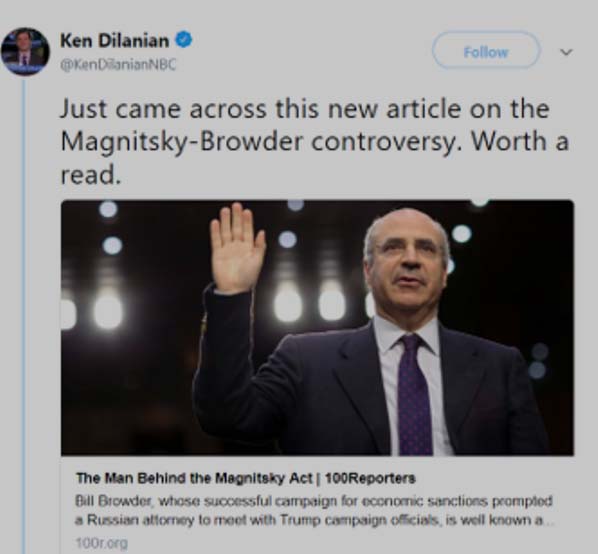
As the State Department’s Robert Otto said, “When the legend becomes fact, print the legend.”
If the State Department’s Russia analyst thinks William Browder is lying about his Magnitsky story, why are the government and the mainstream media (and much of the “alternative” media) repeating his lies?
Dilanian’s report would have made MSNBC the first U.S. mainstream media to expose Browder as a conman.
My first story on Browder was about his Avisma fraud (2014) and second about the Magnitsky hoax (2017), both for 100Reporters. Many other articles are linked here: The Browder hoax. In a decade of my writing dozens of articles and appearing on video and audio podcasts reporting on Browder as a conman and fraudster, he has never countered with evidence that anything I’ve said is wrong. As corporate media repeat his fabrications, see this and this and this, and alleged “disinformation” sites refuse to check out articles that repeat his false claims, he doesn’t have to. For members of Congress and editors of media fearful of challenging a critic of Putin, the legend becomes fact.
Added Dec 6, 2024.
At the Foreign Relations Committee hearing Nov 5, Browder lied, saying the Magnitsky Act was to get “justice for his killer’s and the people who covered up his murder.” In fact, half of the people on Browder’s original sanction list were the tax inspectors and judges dealing with his tax evasion, none of whom had any contact with Magnitsky in prison. Getting the U.S. government and then other countries to defame them was a way to discredit their investigations and ruling on his tax evasion and block his extradition for that crime. That’s why the Magnitsky Act is really the William Browder Protection Act.
As for Magnitsky’s death by badly treated pancreatitis, he would have been released from detention if Browder had paid his back taxes. During his accountant’s 11 months in prison, Browder did not seek the intervention of human rights groups or make public demands for his release.
Instead, of taking responsibility for Magnitsky taking the fall, he makes the drama about himself as victim, saying Putin “made it a single largest foreign policy priority to repeal the Magnitsky Act. Hardly! And, “He went after me with death threats, kidnapping threats.” No evidence.
Even little lies add to the web of deceit. He says that “the European Union has a Magnitsky Act.” In fact, there was a dispute over the name of its human rights law, and the parliament decided to give it a generic name so as not to focus on Magnitsky and Russia. Or Browder.
And finally he attacked Russia on his favorite corruption claim but it comes back to bite him. (Edited for clarity to cut repetitions): “You have a man of Georgian nationality who was a billionaire.” Bidzina Ivanishvili.
“Where did Ivanishvili get his money? From Russia. How did he build his fortune? Through Gazprom and other Russian state-owned companies. In my experience, these companies are highly corrupt. Ivanishvili earned several billion dollars and returned to Georgia. So how do the Russians control this? They tell him: ‘You earned money in potentially questionable ways. We can seize it all, initiate a criminal investigation, or do nothing—if you help us.’ And so he has been actively assisting them ever since.” Browder blames Ivanishvili for supporting the elected Georgian government’s refusal to take orders from EU officials.
Where did Browder get his money? Russian investigators found he used shell companies with Russian frontmen to buy $30 million of Gazprom shares at a time they were sold more cheaply to nationals in Russia than to foreigners buying American depository receipts in London. And he could sell them at the higher price. The Russians charged him for the fraudulent stock buys. See this.
As Otto indicated, the U.S. government knows Browder’s story is fake, but it’s useful in its propaganda strategy to rally the country against a demonized Russia.
MSNBC is not the only media that wants to cover up the Browder Magnitsky hoax.
At a Council on Foreign Relations meeting in 2018, I asked “prominent” journalists Stephen Engelberg, editor of ProPublica, and Brian Stelter, commentator on CNN, why media didn’t talk about MSNBC killing Dilanian’s story. They said didn’t know about that and would look into it. I never heard from them again! Click below for the text and video. Are U.S. journalists afraid of being called acolytes of Putin, do they follow orders of the Deep State, does the corporate press just stick together, or are they lazy?
Steven Brill is the founder of NewsGuard which is a self-described “disinformation” operation that in fact works to prevent major media from running stories the Deep State doesn’t like. If you send him a story, does he detail what is not true, does he look at and refute documents? Of course not. Here is his answer to the Browder/Magnitsky hoax story I sent him after telling him about it at a Council on Foreign Relations meeting.


Any details? No. Any questions raised? No. Is this how he handles news stories he rules on? File Brill’s NewsGuard under “disinformation.” More about NewsGuard here. And here.
Columbia Journalism Review
Some years ago then CJR editor Kyle Pope read my story, said it was “great,” he wanted to publish it. Then he talked with an MSNBC editor. And he didn’t publish the story. With no reason except that MSNBC “denied” it was true, no details. That their own reporter’s findings were not true? Or that a story that repeated their reporter’s findings was not true? Did Kyle Pope go with that denial against the evidence that made the story “great”?
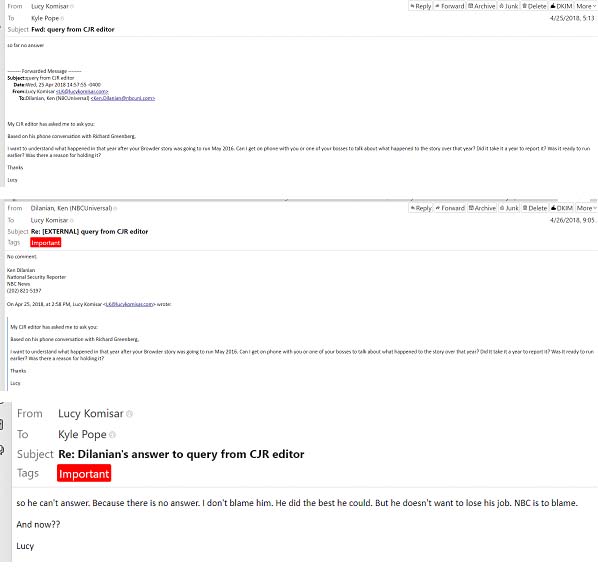
Then Sewell Chan (former NYT oped editor, former Texas Tribune editor) was made editor of Columbia Journalism Review. And I sent him the details of Pope’s killing the Dilainian story. His reply: “I can’t devote resources to something that happened years ago.”
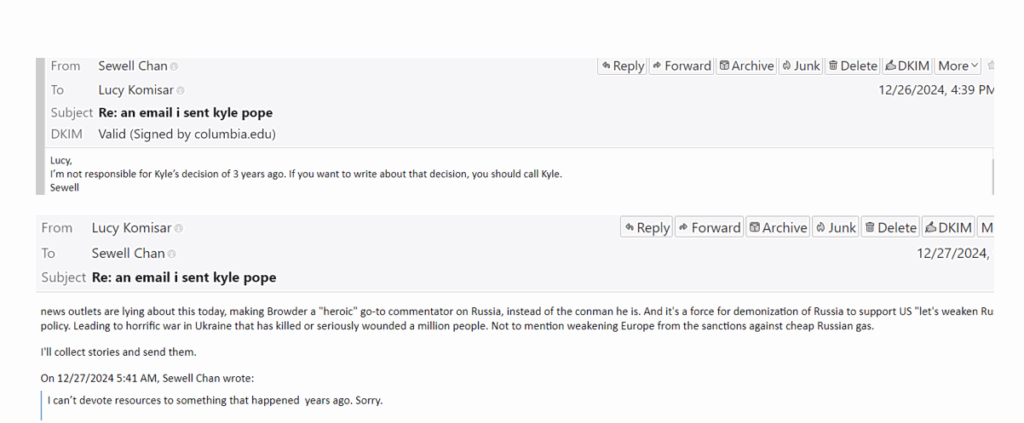
In April 2025, Chan was fired. Staffers said he was abusive. From the details, maybe just a tough editor. More serious, he “abused” the journalistic ethic to tell the truth. “Too old” he said. And though the Browder-Magnitsky hoax is the Rosetta Stone of U.S. Russophobia, CJR still refuses to tell the truth about it.
Like CJR, across a media spectrum, individuals with power to shape what Americans know agree that they don’t want them to know about the Browder-Magnitsky hoax.
An old story? This is a new story every day as newspapers and the State Department repeat the same lies Dilanian tried to expose that propagandize Americans to accept U.S. hostility to Russia. Are editors terrified of being accused of “sleeping with Putin?” Whatever happened to courage in journalism?
AND NOW readers report the story is banned on FaceBook!


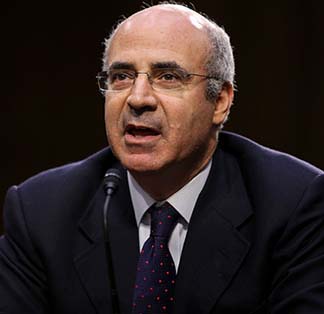
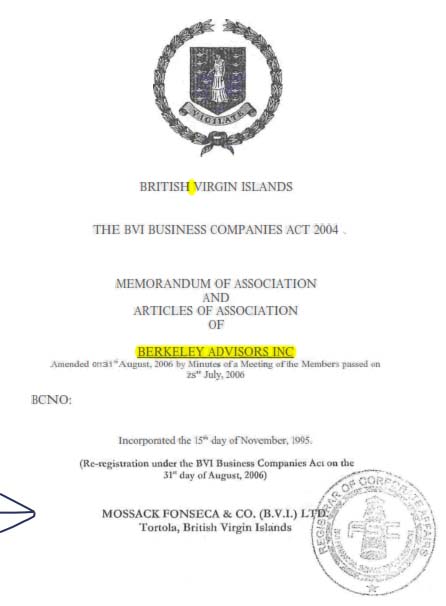
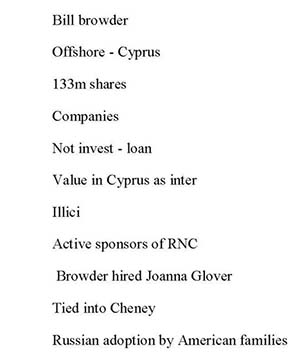
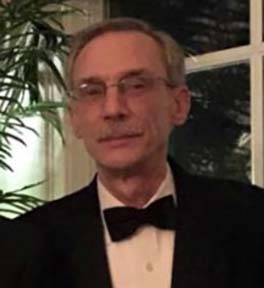
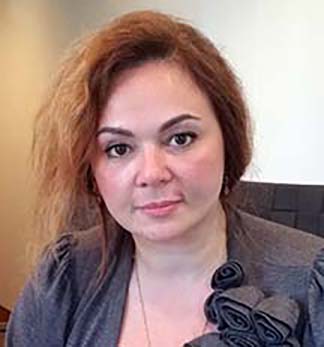
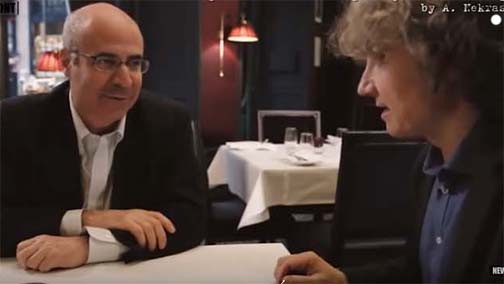
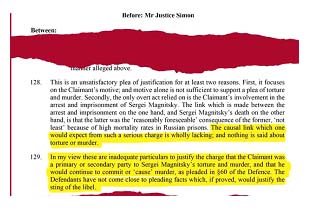
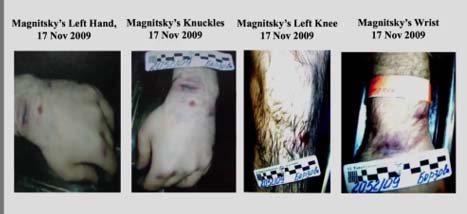
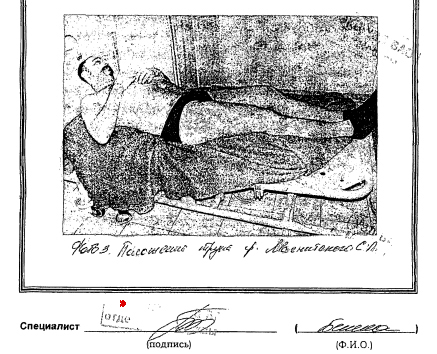
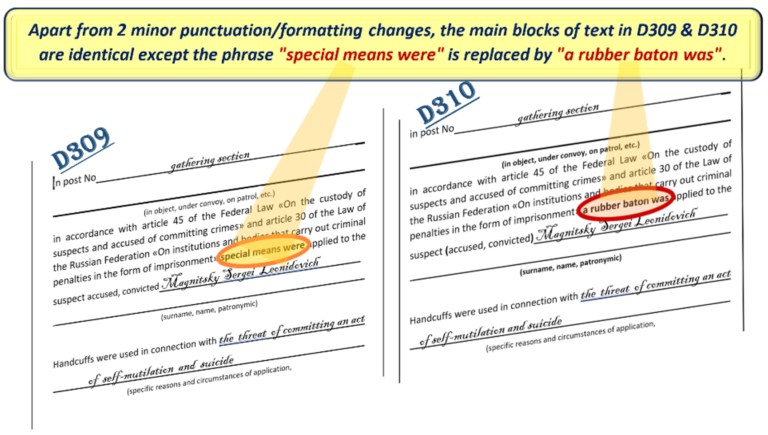
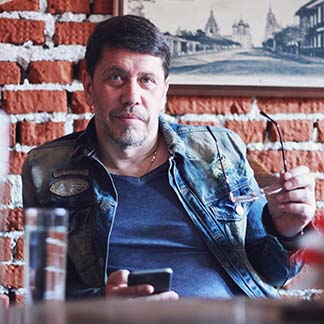
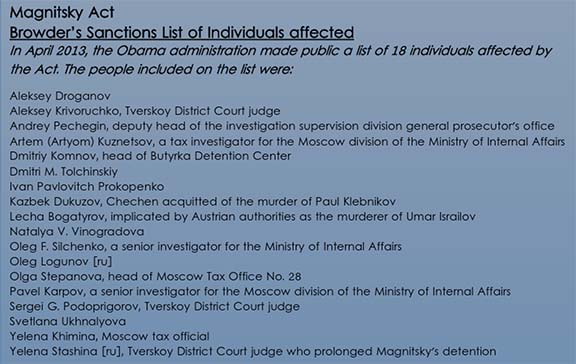
Lucy,
You wrote: “Opposition to the “Magnitsky” law had prompted Russian lawyer Nataliya Veselnitskaya, to get a meeting with Donald Trump Jr, the famous Trump Tower meeting, in June 2016.”
Your factual basis for this naked and inaccurate claim?
We have the 2016 emails from the flack who sought the Trump Tower meeting and specifiied that the Kremlin was offering Trump help to win the election.
Don Jr. confirmed these email messages, including his welcoming response, after the NYTimes obtained copies in July 2017. For a year Don Jr. lied and denied about the email — and we have video of those lying denials.
Sp your writing that this was about the Magnitsky matter just repeats the Kremlin/Trump cover story.
Perhaps you want to explain?
Lucy: As I wrote in Consortium News in 2019, the meeting wasn’t to provide dirt on Hillary Clinton, which the Russian lawyer did not have and never produced. That was a ploy by Robert Goldstone, “the flack,” a British music publicist working for a third party whose job was to get what his client wanted, in this case, to help Veselnitskaya get a meeting. So, recklessly, he invented the idea of Clinton dirt as a bait-and-switch to get Trump’s people to come to it. He got the lawyer the meeting for her to lobby a potentially incoming administration against the Magnitsky Act, which is why she was in the United States in the first place. So the Goldstone email messages were not true. There is no Kremlin/Trump cover story except maybe by the NY Times that did not explain what I and I presume they knew which is that sometimes (often) you can’t believe the flack. And repeating the Kremlin/Trump smear doesn’t hack it, especially since Mueller after a couple of years and millions of dollars couldn’t prove it. https://consortiumnews.com/2019/07/03/mueller-report-gets-the-trump-tower-meeting-wrong-promotes-browder-hoax/
Dear Lucy,
1) Thank you very much for trying to shed light on this dark story for so many years!
2) I have one small correction about what you wrote. You wrote: “A document about a rubber baton, which he posted on his website, was a forgery, tracing a template giving permission for use of handcuffs. A Russian template about rubber batons does not exist.” In fact, the Russian document mentioning a rubber baton does exist, but it is also a forgery. I did the translation of this Russian “original” into English for Michael Thau. Why I am confident that the Russian “original” is a forgery? Because it has way too many serious inconsistencies, about a dozen as I recall. For example, the supervisor’s last name who was on duty during the alleged beating was Markov, but the signature on the Russian “original” clearly reads “Markin”. Markov is a little-known Russian last name. Markin is a common Jewish last name. I bet that Browder asked somebody in Brooklyn or in London to sign on the “original” Russian document, and the person who signed it was quite familiar with the last name Markin, but not Markov. Since Browder cannot read Russian handwriting, he did not notice this error. And about eleven other errors. Bottomline: not only the English translation was forged, but the Russian “originals” were also forged.
Lucy: I was saying this was a forgery, the document “exists” but it is a forgery. That a “true” and “legitimate” Russian template about rubber batons does not exist. Thanks for the details.
This is Dimi’s full analysis of the Browder forgery: https://www.thekomisarscoop.com/wp-content/uploads/2024/12/D310_forgery_signs_plus.pdf
Pingback: My video interview about Bill Browder by "progressive" British journalist Ross Ashcroft was censored and killed : The Komisar Scoop
Pingback: Who is behind the attacks on Tulsi Gabbard? Pres. Trump needs to know. : The Komisar Scoop
Pingback: Why America, the EU, and Ukraine, Should Lose to Russia in Ukraine’s War - All View News
Pingback: Why US, EU, And Ukraine, Should Lose To Russia In Ukraine’s War
Pingback: Why America, the EU, and Ukraine, Should Lose to Russia in Ukraine’s War – digitado
Pingback: Why America, the EU, and Ukraine, Should Lose to Russia in Ukraine’s War – Patriosity.com